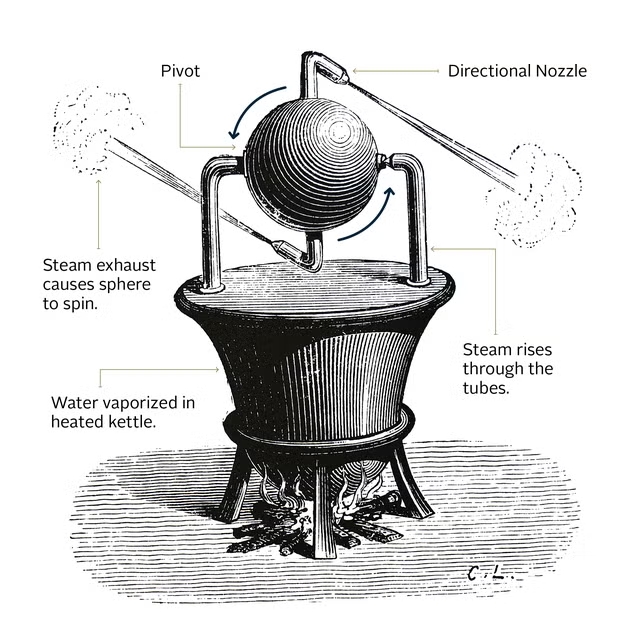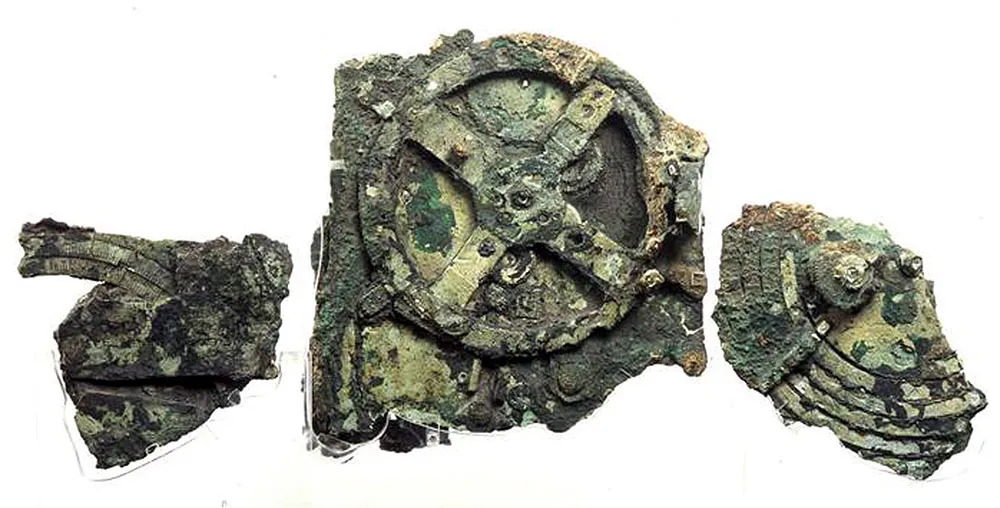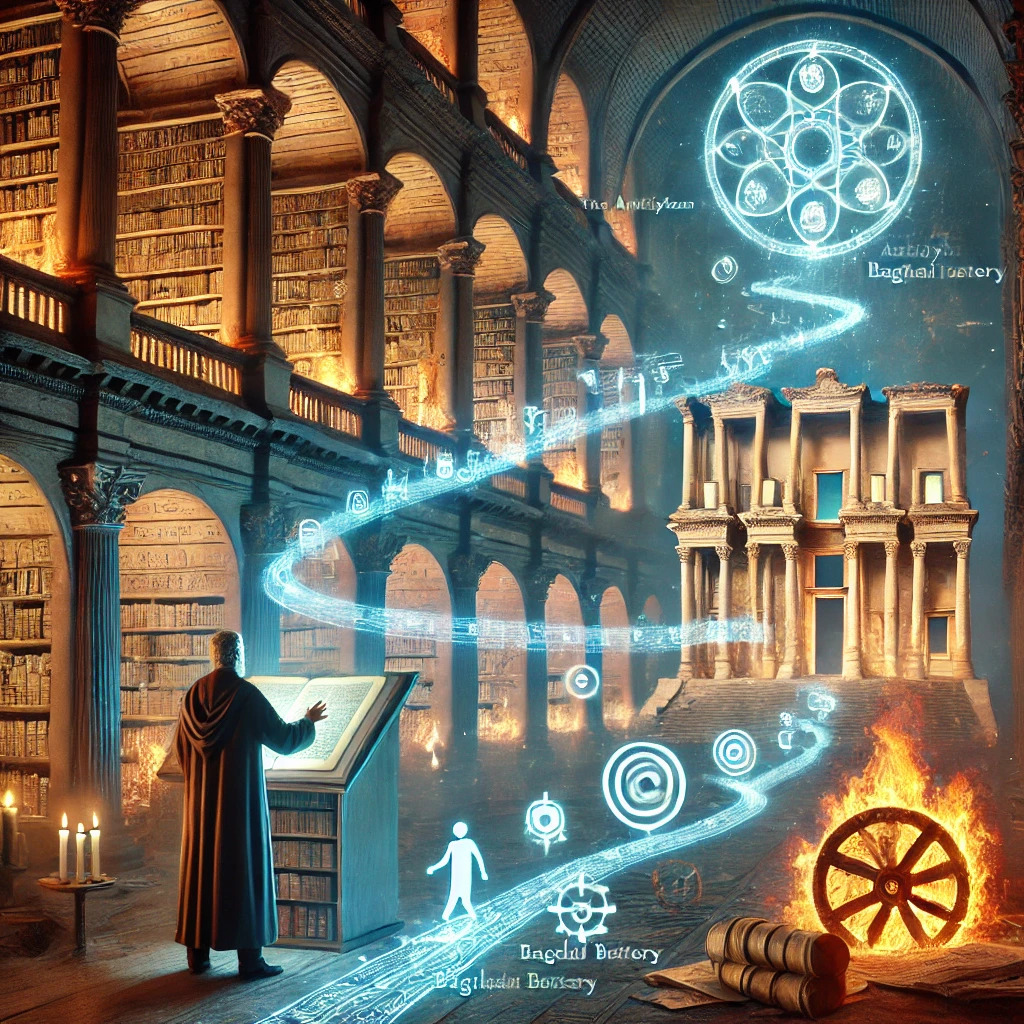Throughout history, humanity has experienced moments of extraordinary scientific and technological enlightenment, only to see them dissolve into oblivion due to wars, catastrophes, or shifts in mentality. This phenomenon raises an intriguing question: how much knowledge has been lost, and how much is yet to be rediscovered?
The Golden Age of Knowledge: Alexandria and Beyond
One of the most emblematic examples of an era of remarkable progress is the Library of Alexandria, founded in the 3rd century BCE. Here, scholars such as Eratosthenes calculated the Earth's circumference with astonishing precision, Archimedes developed concepts of hydrostatics and levers, and Hero of Alexandria invented the first rudimentary steam engine (described in ancient texts, though no physical artifacts have survived). Hero of Alexandria's steam engine is the Aeolipile, a device that used the principle of steam reaction to generate rotary motion. Although it was never developed for practical purposes, it represents one of the first documented examples of the use of steam power in history. However, the destruction of the library marked the loss of thousands of manuscripts and scientific knowledge that could have advanced the Industrial Revolution by centuries.

Hero of Alexandria's steam engine - Aeolipile
Forgotten Civilizations and Lost Discoveries
History does not end with Alexandria. Ancient civilizations held vast repositories of knowledge that time has erased from collective memory. Consider Göbekli Tepe, a 12,000-year-old archaeological site that challenges traditional views of human societal evolution. Or the enigmatic Antikythera Mechanism, a 2nd-century BCE astronomical device so advanced it has been compared to an early analog computer.

Antikythera Mechanism - source - Britannica.com
Cycles of Enlightenment and Oblivion
The history of science appears to follow a cyclical pattern: progress, decline, rediscovery. During the European Middle Ages, much Greek and Roman knowledge was forgotten but preserved in the Islamic world by scholars like Averroes and Alhazen. The Renaissance reignited scientific exploration, reviving ideas from Copernicus, Galileo, and Newton, some of which had roots in ancient thought.
What If It Wasn’t the First Time?
Some researchers and alternative historians suggest that this cycle of knowledge loss may not be limited to documented history. Myths and legends of lost civilizations, such as Atlantis, might reflect distant epochs erased from time. Additionally, anachronistic artifacts like the Baghdad Battery hint that humanity may have repeatedly approached technological advancements before losing them again.
What Does the Future Hold?
Today, we live in an era of unprecedented technological progress, but knowledge remains fragile. Natural disasters, global crises, or even the loss of digital archives could set humanity back centuries. If our civilization were to collapse, how long would it take to rediscover our own scientific achievements?
History teaches us that knowledge is never guaranteed, and every scientific breakthrough is a treasure to be protected. Perhaps the true key to avoiding another dark age is not just creating knowledge but preserving and passing it on to future generations.








Leave a Comment